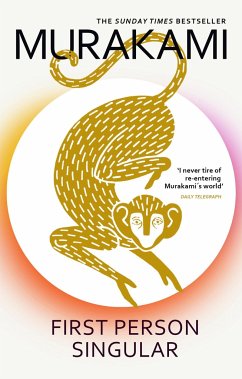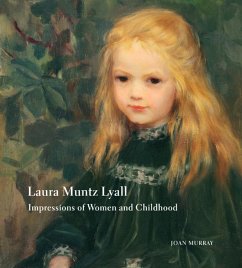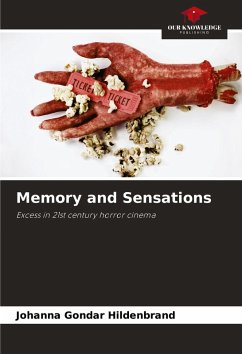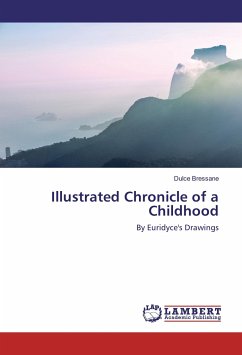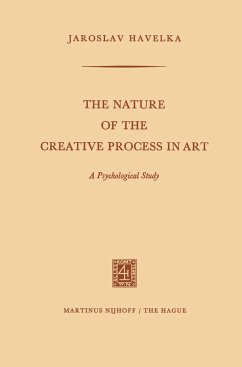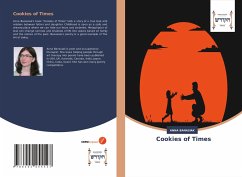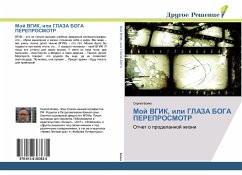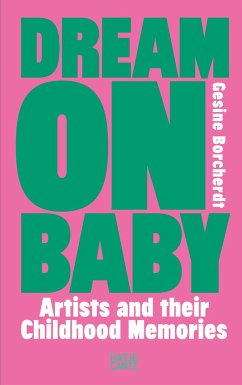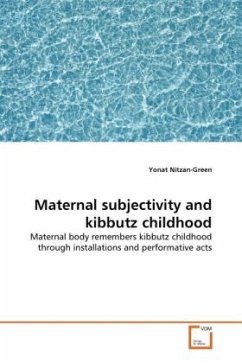
Maternal subjectivity and kibbutz childhood
Maternal body remembers kibbutz childhood through installations and performative acts
Versandkostenfrei!
Versandfertig in 6-10 Tagen
45,99 €
inkl. MwSt.

PAYBACK Punkte
23 °P sammeln!
The maternal body has been theorised by the French theoretician Julia Kristeva as the site where bodily materials cross the boundary of the body, for example, the event of birth. The abject is a feeling of horror and fear when these boundaries are crossed, with regard to social conventions of what is accepted and what is rejected. As children, we learn to control our bodily boundaries as this is a condition for social acceptance. However, as mothers we return to this process of being between body and society through our maternal bodies. Elizabeth Grosz's critique of Kristeva's refusal to theor...
The maternal body has been theorised by the French theoretician Julia Kristeva as the site where bodily materials cross the boundary of the body, for example, the event of birth. The abject is a feeling of horror and fear when these boundaries are crossed, with regard to social conventions of what is accepted and what is rejected. As children, we learn to control our bodily boundaries as this is a condition for social acceptance. However, as mothers we return to this process of being between body and society through our maternal bodies. Elizabeth Grosz's critique of Kristeva's refusal to theorise the subject of the maternal body is used as this research's starting point. Yonat Nitzan-Green's art practice is shaped by a dialogue between theory and practice. This dialogue reveals that central to both, maternal experience and kibbutz childhood memories, are questions of boundaries, fragmentation and invisibility which are rooted in trauma. This book should contribute to the understanding of maternal subjectivity. It should be especially useful for professionals in the fields of therapy and art.



